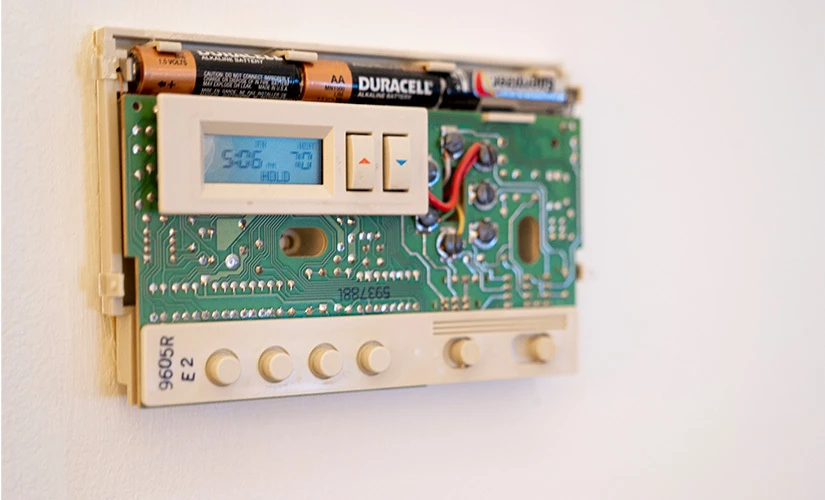How to Test a Thermostat

Are you concerned your thermostat may be on the fritz? It’s time to find out how to test a thermostat to put your mind at ease or solve any potential issues that may be brewing. If you read the word “test” and immediately feel anxiety creep up on you, know there’s no need to worry—a thermostat test is straightforward and simple enough for any homeowner to perform. Keep reading for the step-by-step instructions for how to tell if a thermostat is bad and the help you need to ensure you have a well-working device.
How to Tell If a Thermostat Is Bad
Some signs pointing to a malfunctioning thermostat include:
- The furnace or air conditioner won’t turn on. While there may be an issue with the unit itself, it’s also possible there’s a thermostat wiring defect.
- No change in your home’s temperature after you adjust the temperature setting, or the setting and the temp don’t match up.
- The HVAC is running continually without stopping.
- The thermostat has no power—could be the batteries, or could be something else—a test will tell you for sure.
3 Steps for How to Test a Thermostat
- Run a system test.
- Smart thermostats: Run a system test following the instructions included with your smart thermostat. Navigate through settings to find a “Test” function. Follow the instructions on screen.
- Standard thermostats: Enlist a friend or family member to assist, Position one person by the thermostat and one person by the furnace. Slowly turn the thermostat from off to heat and increase the temperature. Both the thermostat and furnace should make a sound. The problem lies in the appliance that does not make a sound.
- Clean a mechanical thermostat.
In the case your thermostat is an older mechanical model, it may have an accumulation of dust causing it to malfunction. To clean it, remove the thermostat cover and thoroughly dust the inside with a small, soft-bristled brush or a cloth. - Replace the batteries of a battery-powered thermostat.
When you have an electronic thermostat, you have to change the batteries from time to time. Switch out the old batteries with new ones to make sure that’s not the source of the problem. Typically, you will need to replace the batteries on a yearly basis.
What’s Next after Your Thermostat Test?
If you determine none of these issues is what’s causing your thermostat problem, or if you identify it is a wiring issue that requires professional repair, reach out to your local HVAC team at Aire Serv. It’s always a good idea to take the necessary safety precautions with your heating and cooling system. Let Aire Serv’s qualified technicians provide a thorough inspection to ensure your HVAC, including the thermostat, is running safely and optimally. We can also help you to explore how investing in a smart thermostat can increase your energy efficiency and save you money.
Contact the Aire Serv near you today or schedule an appointment online now.
 Click to call
Click to call


